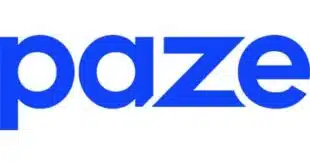Like them or not, the Federal Reserve Board’s controversial debit card regulations to implement the so-called Durbin Amendment will take effect, though possibly a little late, according to Capitol Hill observers speaking at the Electronic Transactions Association’s annual conference Wednesday. In the meantime, a proposed 12-cent cap on debit interchange could be “modified” upward, a former Senator who lent his name to a massive financial-reform bill told the audience.
Government regulations were the topic of several sessions at the San Diego conference, the highlight of which was a keynote speech by former U.S. Senate Banking Committee chairman Christopher J. Dodd, D-Conn. Dodd’s name is on the Dodd-Frank Wall Street Reform and Consumer Protection Act of 2010, the law that includes the Durbin Amendment. The Fed’s preliminary proposal to carry out the amendment’s dictate that it set “reasonable and proportional” debit interchange calls for 7- to-12-cent transaction caps. Issuers currently receive an average of 44 cents per debit card purchase, so they are looking at revenue cuts of more than 70%.
Dodd, who did not seek re-election in 2010 after 36 years in Congress, indicated that a bill by Sen. Jon Tester, D-Mont., to delay the amendment’s effective date by two years faces tough sledding. That’s because even though Tester may have the 60 votes he needs to cut off debate by opponents, he may not get another measure to which it can be attached and that Congress will then pass.
Thus, it looks like interchange regulation will take effect on July 21 as Dodd-Frank specifies. The Fed, saying it couldn’t meet the law’s April 21 deadline for releasing final rules that would take effect three months later, delayed release in order to consider the heavy volume of comments its original proposal received but said the regulations would be out by July 21.
It’s very possible the Fed might not release anything until close to the final deadline, and that probably will lead to a delay in enforcement, according to payments attorney Holli Targan, a partner with Jaffe Raitt Heuer & Weiss in Southfield, Mich. “Total guess, but in my view that’s probably the likely scenario, that the proposed reg will come out, and that in the reg itself that it will be delayed beyond the July 21 date,” she said while speaking on a panel at the ETA show.
Dodd gave some insights about how the Durbin Amendment last spring became part of a huge bill to reform the nation’s financial system. Essentially, Dodd did No. 2 Senate Democrat Richard Durbin, D-Ill., a favor by letting him insert a merchant-friendly proposal to regulate debit card interchange into the reform bill thinking it wouldn’t pass, but it did.
While merchants had been clamoring for years for interchange relief to reduce card-acceptance costs, Dodd said he did not include interchange proposals in a 2009 credit card bill and the big financial-reform bill that Congress passed last year because “this is a complicated area of law,” and that “it was almost impossible, in my view, to craft something that would strike that balance that I thought was critical in this area.” But, he said, “my colleague and friend from Illinois wanted to offer his amendment on the floor. I was nervous that this was going to fly through,” so Dodd put a 60-vote threshold on the amendment for inclusion in the financial bill, “therefore making it a little more difficult to get over the top on this one given the complexity of the issue.”
Then, “what I didn’t anticipate happening happened,” Dodd said: 12 to 14 senators (including some Republicans) who he thought never would vote for such a measure voted for the amendment. “I’d love to tell you it was more complicated than that, but that’s exactly what happened on the floor of the United States Senate and it stayed in the bill.”
Dodd predicted that given the “acrimony” between Democrats and Republicans over the budget deficit and a proposal to increase the debt ceiling, it is unlikely Tester’s bill will find a vehicle to which it can be attached and could then pass. He guessed, however, that the Fed would modify its initial proposal to cut debit interchange to a maximum of 12 cents. “The Fed is going to move that number,” he said.
Dodd also predicted that the amendment’s division of debit card issuers into two camps, those with $10 billion or more in assets subject to the Fed’s regulations and those with fewer assets exempt, might be modified. “It makes too [many] complications,” he says.
Dodd took some heat in a question-and-answer session with an audience of merchant-acquiring and independent sales organization executives largely opposed to Durbin’s measure. He reiterated that the issue “is complicated,” and until recently didn’t draw much attention outside of banking and retailer circles. “When was the last time the [television] networks led with interchange fees?” he asked. Dodd, who recently became chief executive of The Motion Picture Association of America, Hollywood’s chief lobbying group, said the best way for acquirers and ISOs to get their message across would be to invite members of Congress to come to their offices and show them how the measure might hurt their businesses.





